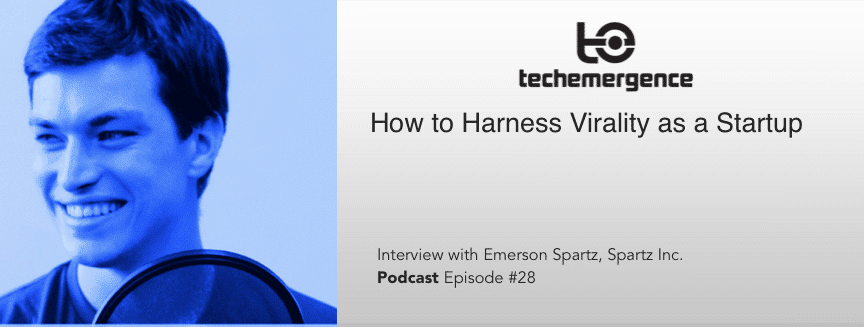
Have you ever wondered why some startups get loads of hype immediately after their launch and others don’t? Is it down to an auspicious alignment of the planets or just sheer luck? The answer is neither; it’s all down to virality. And according to leading expert in internet virality, Emerson Spartz, you have to create your own.
The 26-year-old entrepreneur is also the CEO of Spartz Inc. (which has since been renamed); one of the most rapidly growing digital media publishers, that garners upwards of 160 million page views each month. The Spartz Media Network, which launches a new site every month, is currently comprised of more than 20 websites including: GivesMeHope, OMG Facts, and Lord of the Meme.
Not a typical youth, at a young age, Spartz spent thousands of hours studying the human mind; psychology, behavioral science and neuroscience, this he combined with his knowledge of network science and from this union, the science of virality was born (see his Wikipedia page here). This method of promoting products and services depends on getting customers to promote them for you by telling their friends about it by word of mouth or sharing via social media.
What is Spartz’s secret to harnessing virality? “The more incentive you give people to share, the more likely they are to share.” There are, he explains, a number of ways that you can incentivize visitors to your website. The most powerful one is by stirring their emotions. Remember the fluffy felines that went viral two years ago? But cuteness and humor are not the only ways to feed your visitor’s emotions. You can also use nostalgia, or you can be infuriating. Give people something that reminds them of their past or a controversial topic to think about and they will soon be tweeting and Facebooking their hearts out all.
Another means of getting your followers to promote your business is by giving them rewards. This transactional type of virality —in which you offer discounts or coupons in return for sharing—is the most effective of the two methods because it is simpler. If you want to incentivize your visitors, Spartz says, make a list of what you want them to do, whether it’s sign up, or share you on twitter or Facebook, then make a list of what you can reward them with for doing it. Whichever means you decide to use to market your start-up, Spartz says there is one subconscious thought that everyone experiences before they decide to share something; “is sharing this going to make me look cool.”
Spartz reminds budding entrepreneurs that Facebook is the most important platform for most businesses in terms of virality because Facebook is where people spend most of their time online. “For most businesses Twitter is the second most important, followed by Linkdin and Pinterest.”
When you’re tweeting, Spartz warns, avoid hashtagging generic words and retweeting self-promotional messages, this will only serve to annoy people. Spartz’s research team has also discovered that due to the way people use this particular platform, if you tweet the same message eight hours apart, three times, you will get as many retweets on your third message as on your first. Thus giving you three times as much value from the same tweet.
Another technique for drawing more attention to your content is to post it in the form of a list. Visitors will also find it easier to remember. “80 percent of people,” says Spartz, “only read the heading, so you should spend at least two hours studying great headlines because it will have a huge return on the time you invest in it.” Having a heading that hooks visitor’s attention will make them more inclined to read on.
Using these proven tips can make the difference between having a business that soars or one that’s a big flop. Remember, the time that people are most likely to share is immediately, so make sure you ask them to share the first time they use your product or service, while it is still fresh in their minds.







